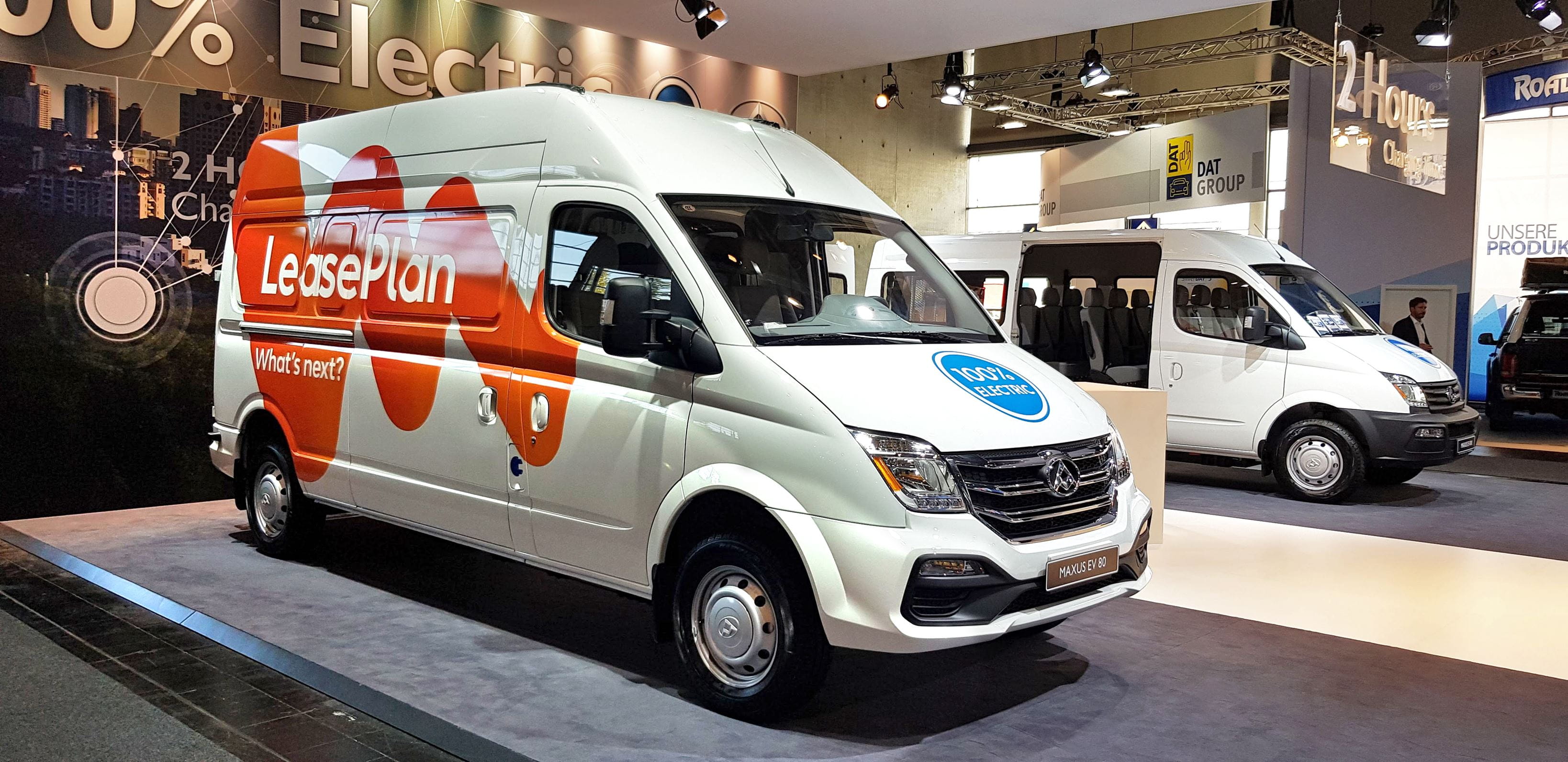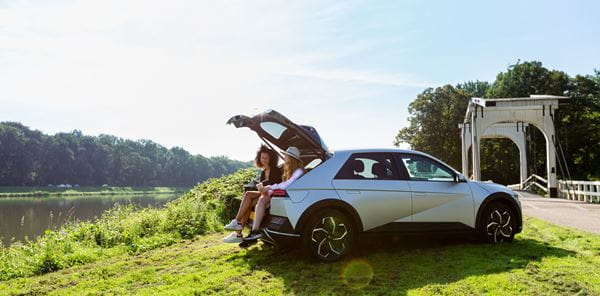
Will your delivery vans soon run on electricity as well?
In just a few days, you will be able to see for yourself at the Brussels Motor Show that company vehicles are also keeping up with the latest trends and developments: (full or partial) electrification and autonomous mobility. Intentions has created an overview of what the market has (or will have) to offer.
Ford Ford recently introduced its plug-in hybrid Transit Custom with a total operating range of 500 kilometres, 50 of which can be driven in the fully electric mode if the car’s batteries are fully charged. The combustion engine is a three-cylinder 1.0 EcoBoost engine (Euro 6) that serves as a range extender. This model’s production will begin in mid-2019.
In other Ford news: the new “conventional” two-tonne version of the Transit. This model stands out with its lower fuel consumption (up to seven percent less) and more connectivity and safety features. The range will now also include a new mild-hybrid diesel version, which can reduce fuel consumption by up to three percent compared to the classic model with a combustion engine. Drivers who have to make frequent stops can even save up to eight percent on their fuel.
Nissan Besides the NV300, which will be shown for the first time ever in Belgium, there is no real electric news to be found at Nissan. In early 2018, the company already increased the battery capacity of its e-NV200 model to 40 kWh, which resulted in a significant increase of the car’s operating range (up to 200 kilometres according to WLTP). These past months, several thousand models of Nissan’s new electric delivery van have been sold in Europe.
Peugeot-Citroën-Opel The small delivery vans made by the PSA group (Peugeot Partner, Citroën Berlingo an Opel Combo) will attend the event in Brussels sporting the title of International Van of the Year 2019. The Partner and the Berlingo have had an electric version for some time now, but the Combo still does not. Nevertheless, Opel intends to offer a range of electric models from 2020, which will include the Combo. PSA also promises to deliver electric versions of the Citroën Jumpy and the Peugeot Expert by 2020.
Volkswagen Volkswagen is also focussing extensively on alternative motorisations; specifically, electric versions of the Caddy and Crafter models. The latter is available as both a plug-in model (e-Crafter) and a – prototype – hydrogen-powered EV (HyMotion). With its ID Buzz Cargo, which has been around for some time as a minivan, the German brand opts for a nostalgic look that references the legendary T1 to announce the future of electric company vehicles. In addition to these electric light company vehicles, Volkswagen also offers a range of other options, including a mild-hybrid version of the Transporter.
Fully autonomous… Last September, Mercedes-Benz and Renault each unveiled their own concept for electric, modular, connected and autonomous platforms: Mercedes’ URBANetic and Renault’s EZ-Pro. The URBANetic concept is based on the chassis of a light company vehicle, onto which modules are installed that can transform a package delivery van into a minivan with the help of a “regular” pallet truck. Due to its autonomous nature, this vehicle offers an increased effective loading volume. Mercedes-Benz promises a loading capacity of ten Euro-pallets or twelve persons on a load platform of 3.70 metres, resulting in a total length of 5.14 metres.
Renault’s EZ-Pro concept, which will be present at the Brussels Motor Show, combines an electric and autonomous main vehicle with a number of robot pods that are pulled along like the wagons of a train.
The driver of this robotic vehicle serves as a “concierge” and is responsible for keeping an eye on everything. The robot pods can separate from the rest of the vehicle and cover the final kilometre autonomously to make deliveries in urban environments. Of course, this concept includes extensive connectivity features. Customers will receive a notification on their smartphone to let them know that the robot is coming and they can then open the hatch behind which their package is safely stored. This modular concept is also adapted to a wide range of other applications, e.g. food trucks. Renault’s main goal with EZ-Pro is to present its vision on the future of urban distribution.
What about CNG? The Iveco Daily – which celebrated its fortieth anniversary in 2018 – has been available in an electric version for some time now. However, like quite a few other models in the Fiat Professional range, Iveco also offers CNG options. “These days, natural gas (CNG) has a market share of ten percent, but that number continues to grow,” says Iveco Benelux’s general director John Venstra. “We are happy to report that CNG is currently the best solution for customers looking to invest in soft mobility.” Using natural gas can reduce the emission of nitrogen oxide by more than 90% and that of particulate matter by up to 99%.
Collaboration between Maxus and LeasePlan The Chinese brand Maxus forms part of the Chinese SAIC group and is looking to expand its operations in Europe. In LeasePlan Corporation, this manufacturer of electric company vehicles has found the ideal partner to open the doors into the Old Continent.






